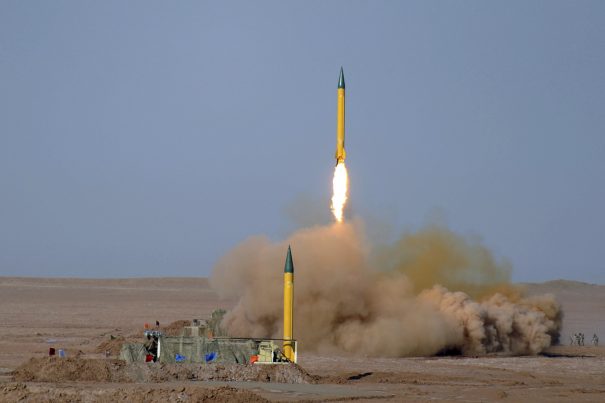
Several Iranian officials vow to break the newly signed nuclear accord with the U.S.
Thursday, September 24, 2015 by usafeaturesmedia
http://www.nationalsecurity.news/2015-09-24-several-iranian-officials-vow-to-break-the-newly-signed-nuclear-accord-with-the-u-s

(NationalSecurity.news) With the ink barely dry on a new agreement to limit the country’s nuclear weapons development, a number of Iranian leaders have already publicly pledged to violate it, The Washington Free Beacon (WFB) reported.
Iranian officials who have vowed to breach the agreement include President Hassan Rouhani and Foreign Minister Javad Zarif, both of whom have said Iran has “no intention” of abiding by a United Nations Security Council Resolution encompassing the deal, as well as other restrictions on the country’s rogue activities.
The officials have also said that Iran views the recent nuclear deal negotiated in Vienna as separate from the UN resolution endorsing the deal, which ostensibly prohibits Iran from further developing ballistic missile technology and buying other types of weapons, according to the Middle East Media Research Institute, or MEMRI, which has issued a new report detailing the statements.
The agreement, which was made earlier this year, is a non-binding set of resolutions focused on Iran’s nuclear program. The deal was transferred to the United Nations and officially endorsed as UNSRC 2231, the WFB reported.
“There is nothing about the topic of missiles, defense, and weapons in the JCPOA. Whatever we have about it is in Resolution [UNSCR] 2231,” Rouhani said Aug. 29, according to MEMRI. “Moreover, we have formally announced that we are not committed to all the sections that appear in the resolution [2231], and we specified in the JCPOA that violation of the resolution [2231] does not mean violation of the JCPOA…”
That echoes what Zarif said August 9, according to MEMRI: “There is a difference between the JCPOA and UNSCR 2231. Violating the JCPOA has consequences, while violating UNSCR 2231 has no consequences.”
The agreement, made earlier this year, is a compilation of non-binding resolutions that are focused on Iran’s maturing nuclear weapons program. The deal was transferred to the UN, where it was endorsed officially as UNSRC 2231.
The resolutions themselves are “not a contract between Iran and the P5+1 countries as a group or any single one of them, and hence no document was signed,” MEMRI noted.
Don’t forget to “like” NationalSecurity.news on Facebook! Click here
Senior Iranian leaders have routinely expressed opposition to the formal resolution adopted by the UN and say Iran is not compelled to abide by any further restrictions on its ballistic missile development.
“President Hassan Rouhani, Foreign Minister Zarif, and Deputy Foreign Minister and senior negotiator Abbas Araghchi emphasized that Iran has no intention of abiding by UNSRC 2231, which includes the JCPOA [Joint Comprehensive Plan of Action] and another element; rather, that they will abide only by the original JCPOA,” which is a nonbinding international agreement, according to MEMRI.
The comments were not the first made by Iranian officials vowing to violate the very nuclear accord they were simultaneously negotiating.
In July, Secretary of State John Kerry said an earlier speech by Iranian Supreme Leader Ali Khamenei vowing to defy American policies in the region despite a deal with world powers over Tehran’s nuclear program was “very disturbing.”
“I don’t know how to interpret it at this point in time, except to take it at face value, that that’s his policy,” he said in the interview with Saudi-owned Al Arabiya television.
“But I do know that often comments are made publicly and things can evolve that are different. If it is the policy, it’s very disturbing, it’s very troubling,” he added.
In his speech, Khamenei said U.S. policies in the Middle East were “180 degrees” opposed to Iran’s policy objectives.
For more breaking information on the threat of nuclear technology, check out Atomic.news, powered by FETCH.news.
See also:
Tagged Under: Tags: Iran, Middle East, nuclear deal, nuclear energy, nuclear weapons






